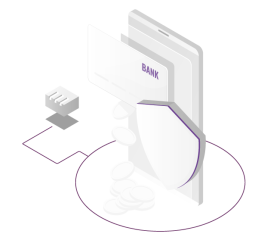The Freedom of Choice
Our approach to technology is summed up in 3 simple words: Flexibility comes first. We designed BOS in such a way, so you could take from the system only what you really need when you need it (and pay for it). Choose from 4 available business lines and build unrivalled financial products. And as your company grows, just add another business line. Easy-peasy.

BOS Core
- CIF (Customer Information File)
- Teller (transaction editor)
- Interest
- Authorization
- Limits monitoring
- Customer restriction definition
- Event Manager (event process definition)
Payments
- Cards payments' handling
- Payment accounts
- Virtual accounts
- Mirror accounts
Fees & Commissions
- Fee codes
- Price list definition
- Price list affiliation
- Subscription plan definition
DDA
- Current account definition
- Overdraft limit management
Savings
- Savings accounts
- Term deposits
Lending
- Revolving credits
- Microloans (instalment products linked to customer transactions)
- Cash loans
- BNPL
General Ledger
- Chard of account definition
- Accountant
- Transaction code definition
Complementary services
- CIS (Customer Information System) - – full customer file
- CRS (Customer Relation Sets) - customer relationships
- Payment Gateway - payment hub: SEPA, SWIFT
- Statements -
- defining and generating daily and periodic statements
- General Ledger/Sub Ledger
Technology
The strength of our system is not due to the use of a single next-gen technological solution, but from the combinations of a suite of such solutions in one product. Let’s be honest. Most core systems available on the market are the cloud-native ones. BOS is not only cloud-native but also cloud-agnostic, which means that it’s compatible with different cloud infrastructures, and it can be moved from one cloud environment to another without disruptions. This perfect combination makes BOS a highly scalable and flexible system that can handle large volumes of transactions and protect sensitive customer data.

BOS inside
Tech that makes a difference
Microservices-based architecture
Each microservice is a self-contained unit that performs a specific function, and that is way it is easier to make changes or updates in BOS system to individual services without affecting the entire system.
Event Driven Processing
At BOS communication between system components is based on events connected with the Customer’s actions and events generated by business components;
Cloud native&cloud agnostic
BOS system has been created with the assumption that it will operate in a public cloud, but it can still be installed in any computing center (private cloud, on – premise);
Open Api
BOS gives the possibility of full and flexible integration with external systems (or modules) implemented by other suppliers without the need for the Supplier’s intervention;
Zero downtime deployment
BOS’ new system versions can be implemented without any downtime.
Database agnostic
BOS can run on any database (current implementations include PostgreSQL and MS SQL)
Component – based nature
BOS component – based nature allows to easy implement business processes expected by the client, integrated with OmniChannels while maintaining the transactional nature of the solution based on a distributed architecture.
BOS includes everything you need to run a next-gen fintech
Functional advantages
BOS means 'to get more'.
When we created BOS, we wanted to offer our customers something more than what legacy systems available on the market offered at that time. BOS means “to get more”.
Handling relationships with business partners (e.g. partner trade networks)
Allow for optimizing commissions and fees for customers/customer groups. Subscription plans allow for defining service and product packages available to the system user and linking fees and commissions to these plans
Relations between customers allowing, for example, the building of common limits (e.g. within a family). The CRS module allows for defining relationships between the Bank’s customers, for example, it allows for building relationships such as a Family
Auxiliary accounts allowing for carrying out customer and internal bank settlements on analytical items
Auxiliary accounts allowing for carrying out customer and internal bank settlements on analytical items
Allows for building partnership relations with trade partners, thanks to the option of reimbursing part of the transaction monies to the Bank’s customer
An embedded and fully integrated Ledger, both general ledger or sub-ledger, which aggregates analytical transactions in real-time based on a transaction handling mechanism and the links between these transactions and ledge records; it can be integrated with an external corporate ledger
Flexible orchestration of system processes from the user interface. The adopted event-based communication allows for building internal data flow processes, managing information content of the events transmitted in the system, and easy integration of processes occurring in the system with external systems. With event-based communication, externally or internally initiated, the Bank can easily build interactions with the customer when handling the product handling in the system and include the customer in the decision-making and information process.
Event-Driven Product Engine provides for product processing based on external events linked to user activities and events (tasks) generated by business components processing the product. Event-based product processing allows for decomposing the monolithic product processing model. As a result, product processing was broken down into pre-defined allowable business events on the product. Thanks to this the processing of individual events can be readily observed, new events can be defined without affecting other tasks, and product processing can be modelled based on defined business functionalities.

Agile implementation
How BOS does it?
INITIAL STAGE
BRD definition and approval
We start with your project team by defining your business requirements and determining the functional and technological scope of the project. All we need from you in order to start the system is a general vision of the solution.


IMPLEMENTATION STAGE
MVP Implementation
In the next sprints, we’ll jointly specify the details of your business and how it’s going to be addressed in BOS. You can count on our experience-led approach to the implementation of financial products and processes. The process is composed of requirement refinement, system set up, system development an integration test, and UAT; it’s also repeatable.
FINAL STAGE
MVP&Go Live!
After implementation, BOS and the functionality of your company are under our care at all times, every day throughout the year. Our specialists are ready to solve any problems related to our system and clarify any doubts that may arise during its operation.

Need more information?

